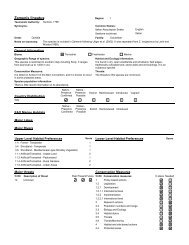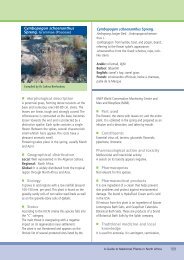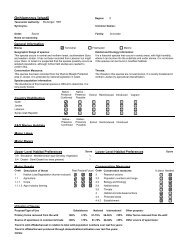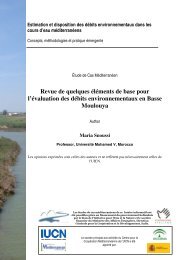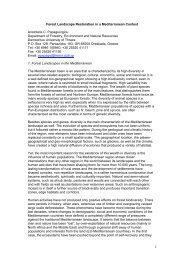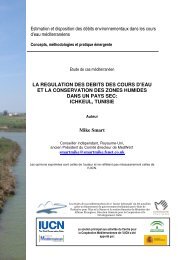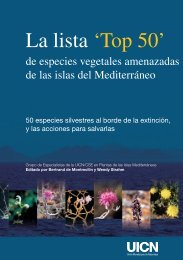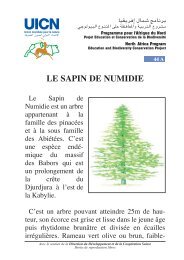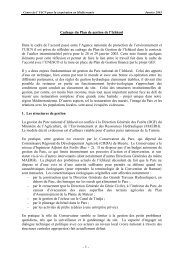The Protected Landscape Approach - Centre for Mediterranean ...
The Protected Landscape Approach - Centre for Mediterranean ...
The Protected Landscape Approach - Centre for Mediterranean ...
Create successful ePaper yourself
Turn your PDF publications into a flip-book with our unique Google optimized e-Paper software.
16. Building leadership and professionalism<br />
Conservation management<br />
training in the Pacific Island<br />
States. <strong>The</strong> management of<br />
<strong>Protected</strong> <strong>Landscape</strong>s today<br />
requires an array of management<br />
and specialist skills.<br />
Shaun Russell, ICPL<br />
in any sector), that when economies are stretched and budget constraints are introduced, staff<br />
training provision is often the first activity to be curtailed.<br />
<strong>The</strong> Durban Accord, an output of IUCN’s World Parks Congress 2003, again highlighted<br />
concerns about the “lack of access to technology, knowledge, lessons learned and best practice<br />
models <strong>for</strong> effective and adaptive management” experienced by many protected area practi -<br />
tioners around the world and urged a greater commitment to “building the capacity of protected<br />
area managers.”<br />
Training needs <strong>for</strong> protected landscape managers<br />
<strong>Protected</strong> area professionals, including protected landscape managers, have traditionally come<br />
from the natural science disciplines – they are likely to be, <strong>for</strong> example, <strong>for</strong>esters, ecologists,<br />
biologists or zoologists. <strong>The</strong>y are specialists in their own fields and clearly have a great deal to<br />
offer in terms of technical expertise. However, as described above, the management of<br />
protected landscapes today requires a much broader perspective, coupled with a range of new<br />
management skills, which were not <strong>for</strong>merly considered the realm of conservationists. An<br />
understanding of the conceptual framework of the protected landscapes approach and a wide<br />
range of both specialist and generic skills are important <strong>for</strong> managers to be effective. Specialist<br />
skills include, <strong>for</strong> example: policy development, management planning; biodiversity conser -<br />
vation; development control; heritage conservation; sustainable economic/social develop ment;<br />
agricultural liaison; visitor/tourism management; in<strong>for</strong>mation, education and inter pretation;<br />
landscape assessment; in<strong>for</strong>mation management; and financial management. <strong>The</strong> specialist<br />
skills embrace both natural and social sciences and, importantly, their practical and technical<br />
application within the philosophical framework of the protected landscape approach. <strong>The</strong>y are<br />
both scientific and technical; they concern economics, planning, multiple land-use, social<br />
processes, education and in<strong>for</strong>mation dissemination, and participatory plan ning and manage -<br />
ment.<br />
Generic skills – necessary <strong>for</strong> the implementation of the specialist activities identified above<br />
– include, <strong>for</strong> example: partnership-building; participatory approaches; collaborative leader -<br />
223



